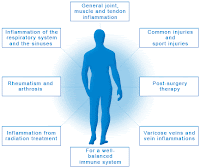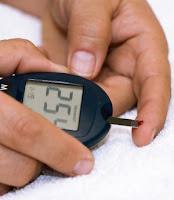Enzymes For Health
Tuesday, March 29, 2011
APRIL 1, 2011 - PILLARS 5 OPENING OF OFFICES
Dear Member/Friends,
As promised, we will officially open our offices in Ortigas and Makati this coming April 1, 2011.
Our business presentations will resume April 2nd with the following schedules:
10am and 5pm - Makati
2pm - Ortigas / Greenhills
Office locations:
Greenhills - Room 327, Sunrise Bldg., Ortigas Ave., San Juan. (Just after Greenhills Shopping Complex, coming from Edsa)
Makati - 1198 Vito Cruz cor. Pasong Tamo Extension, Makati.
Hope to see you there, guys! Contact us on our cellphones so we can coordinate.
- Tony / Paul
Saturday, March 12, 2011
Protein Digesting Enzymes Can Improve Body’s Digestive Function
Digestive enzymes are enzymes that break down foods into materials that the body can use. Protein digesting enzymes can improve the body’s digestive function and assist in breaking down protein.
Incomplete digestion is the cause of several ailments such as flatulence, bloating, food allergies, nausea, bowel problems and stomach disorders.
The human body makes approximately twenty two different enzymes that contribute to digestion. Protein enzymes sources are within the body and also can be derived from a variety of supplements and foods.
Incomplete digestion is the cause of several ailments such as flatulence, bloating, food allergies, nausea, bowel problems and stomach disorders.
The human body makes approximately twenty two different enzymes that contribute to digestion. Protein enzymes sources are within the body and also can be derived from a variety of supplements and foods.
What You Should Know About Metabolic Processes and Protein Enzymes
Protein enzymes are not like casein, bacterial walls, parasitic protective films or even soya and gelatine proteins. These are catalysts which literally increase the speed of the chemical process that would make absorption and digestion as well as cleansing of the body possible.
Long chains of amino acids held together by peptide bonds are what consist of enzymes which are proteins too. They are found in all living things where they perform a large role in the metabolic process of any living organism. This is the only way that the nutrients from ingested foods are broken down into tiny particles and converted into the energy that the body needs as well as becoming fresh material for cells reproduced.
Long chains of amino acids held together by peptide bonds are what consist of enzymes which are proteins too. They are found in all living things where they perform a large role in the metabolic process of any living organism. This is the only way that the nutrients from ingested foods are broken down into tiny particles and converted into the energy that the body needs as well as becoming fresh material for cells reproduced.
Sunday, January 30, 2011
Enzymes for Weight Loss and Overall Good Health
How You Can Supplement with Digestive Enzymes for Weight Loss
Digestive Enzymes can play a big part in weight control and reveal a hidden factor in obesity.
Working with people either choosing to practice self-treatment through the use of natural and holistic means, or to supplement standard medical care with nature's helpers (herbs, vitamins, minerals, homeopathics, etc.) is exceptionally gratifying.
One of the most difficult challenges to convey is exactly how to present this subject in a way that also embraces and includes a holistic view and approach to treating obesity.
Digestive Enzymes can play a big part in weight control and reveal a hidden factor in obesity.
Working with people either choosing to practice self-treatment through the use of natural and holistic means, or to supplement standard medical care with nature's helpers (herbs, vitamins, minerals, homeopathics, etc.) is exceptionally gratifying.
One of the most difficult challenges to convey is exactly how to present this subject in a way that also embraces and includes a holistic view and approach to treating obesity.
Therapeutic Enzymes
by Matt Monarch
As precious as powdered gold, enzymes are extremely valuable for the Raw Foodist. Simply said, they prolong life! Although best known for their power as a digestive aid, their hidden potential far surpasses that function. Let me explain.
(1) Digestive enzymes - to digest food
(2) Metabolic enzymes - which we depend on for life
Metabolism is the total of all chemical changes that take place in a cell or an organism to produce energy and basic materials needed for important life processes. Metabolic enzymes, perfectly named, are involved in every process of the human body. In fact, even digestive enzymes start as metabolic enzymes. Besides our day-to-day life processes of build up and breakdown, these little powerhouses are catalysts that take an active role in repairing any damage done to our body through injury, stress, poor eating or lifestyle habits, environmental contaminants, and the passage of time.
Friday, January 28, 2011
Digestive Enzymes for Arthritis Relief
 By Stephanie Crumley Hill
By Stephanie Crumley HillWhile we think of arthritis as a disease which affects only the joints, it is a systemic disease which impacts our entire health. Inflammation is a hallmark of the disease. If you suffer from arthritis and want relief without the side effects of prescription medications, you may be able to find relief, as well as improved overall health, by taking digestive enzymes.
Defining Digestive Enzymes
Digestive enzymes are produced by your body to help you break down the foods you eat so that the nutrition contained in those foods can be absorbed and used by your body. Digestive enzymes are present in your saliva, in your stomach and small intestine, as well as in some of the foods you eat. Different enzymes target different components in food. Amylase in your saliva, for example, begins breaking down carbohydrates. While digestive enzymes are crucial to digestion, they play other important roles in the body as well. One of those roles is in helping the body reduce the duration and severity of inflammation and helping with tissue repair and recovery time. As you age, your body's production of digestive enzymes decreases. Coincidentally, arthritis is more common as you age.
Treating Diabetes With Enzymes: What We Know Now
By: Dr. William Wong, ND, PhD.
Up to a year ago, for anyone asking if systemic enzymes could help lessen the load of troubles that beset Type 1 diabetic patients, I would have told them about lowering pancreatic inflammation, and possibly helping with lower extremity circulatory issues. I would have never suggested that the use of enzymes could decrease the need for insulin, increase energy or reverse the seemingly myriad of things diabetics suffer from. Then we started getting information from Type 1 patients that amazed even me and that have subsequently sparked new research. Here are two typical case histories.
Case History #1:
A Type 1 diabetic Native American patient from Montana in his mid 40's, very insulin dependent, with peripheral neuropathy in the lower extremities (LE's) and presenting paresthesia as well in the upper extremities (UE's) radiating distally to the hand. Peripheral Vascular Disease (PVD) in the LE's had already caused several toes to be amputated.
Up to a year ago, for anyone asking if systemic enzymes could help lessen the load of troubles that beset Type 1 diabetic patients, I would have told them about lowering pancreatic inflammation, and possibly helping with lower extremity circulatory issues. I would have never suggested that the use of enzymes could decrease the need for insulin, increase energy or reverse the seemingly myriad of things diabetics suffer from. Then we started getting information from Type 1 patients that amazed even me and that have subsequently sparked new research. Here are two typical case histories.
Case History #1:
A Type 1 diabetic Native American patient from Montana in his mid 40's, very insulin dependent, with peripheral neuropathy in the lower extremities (LE's) and presenting paresthesia as well in the upper extremities (UE's) radiating distally to the hand. Peripheral Vascular Disease (PVD) in the LE's had already caused several toes to be amputated.
Subscribe to:
Comments (Atom)




